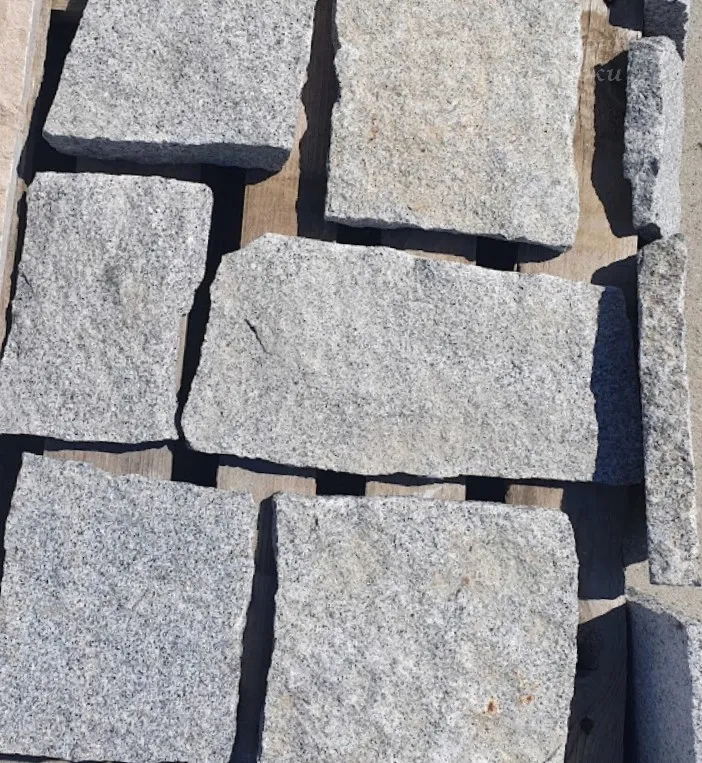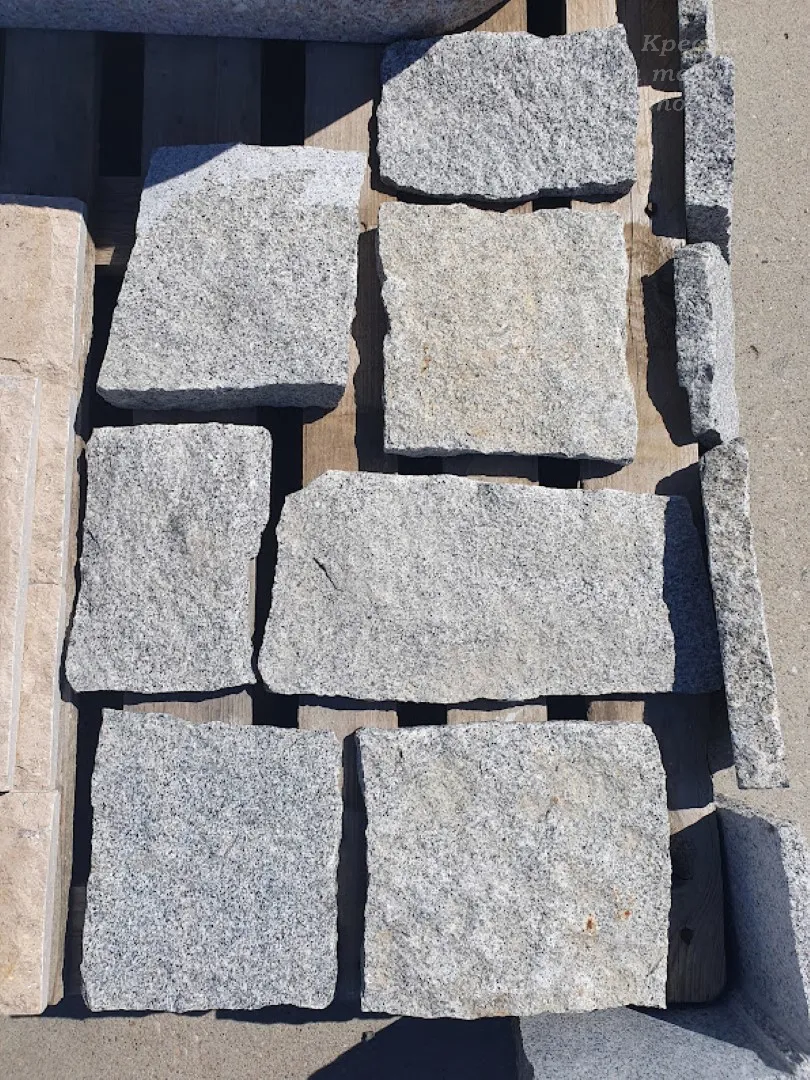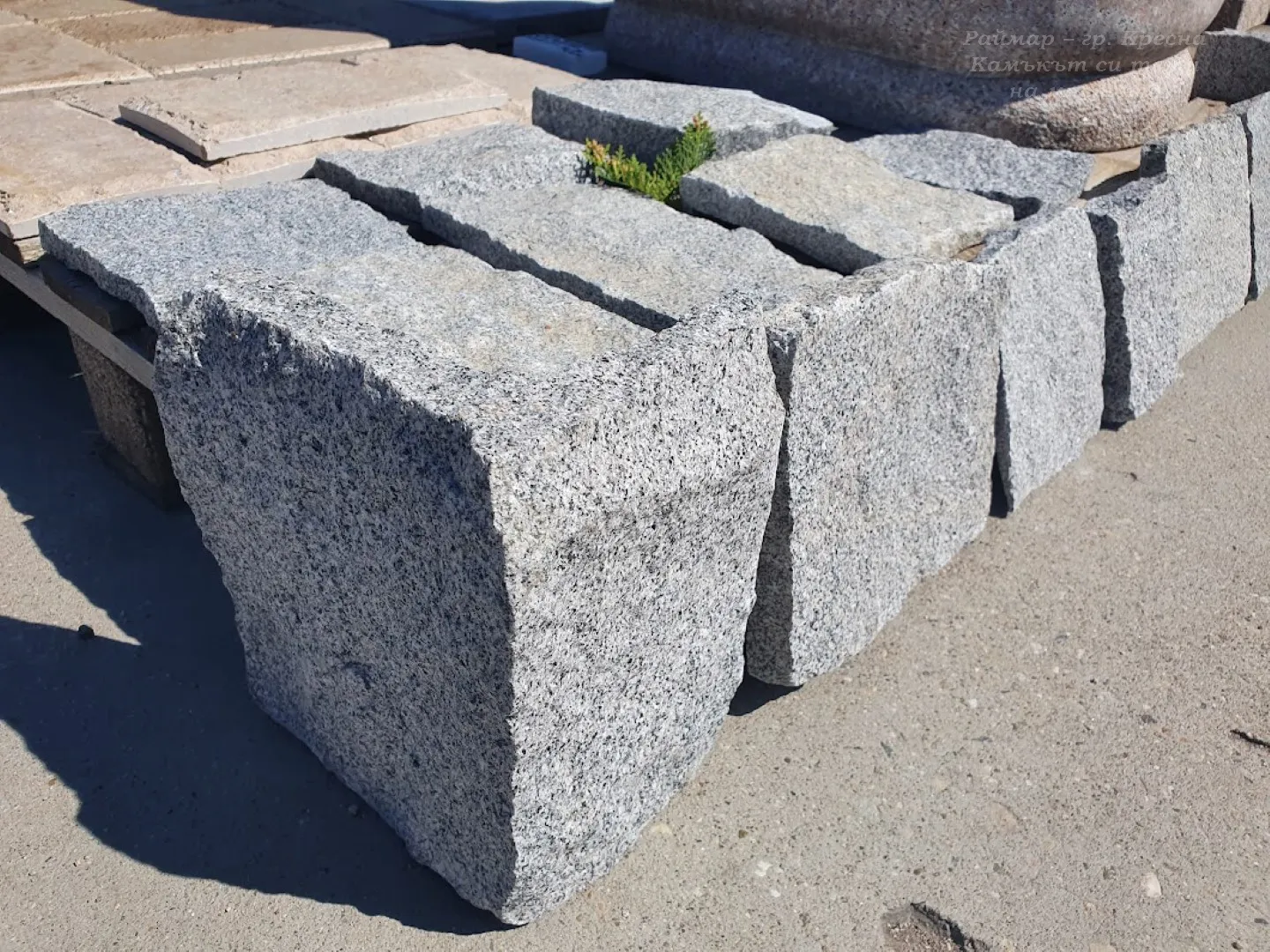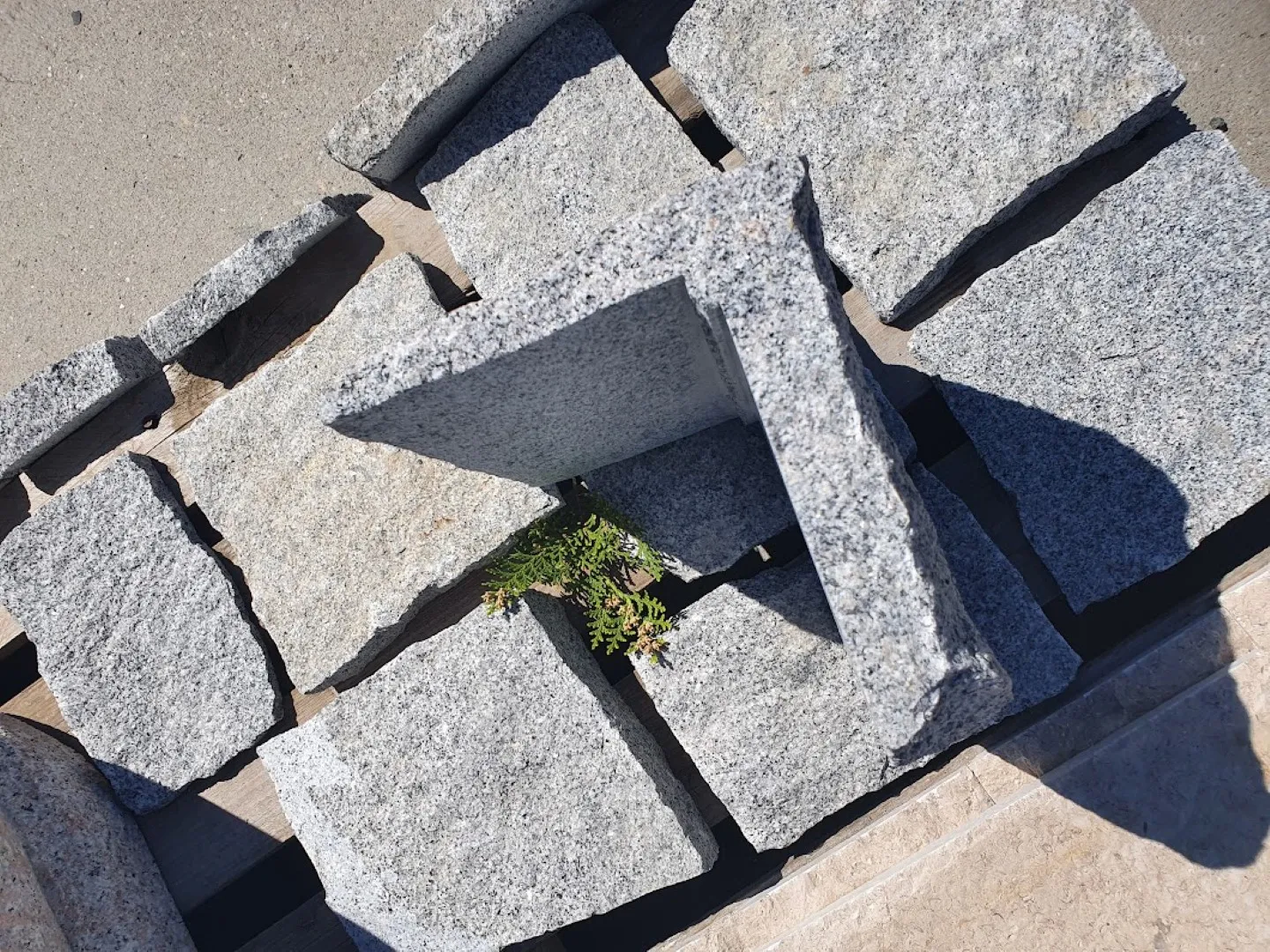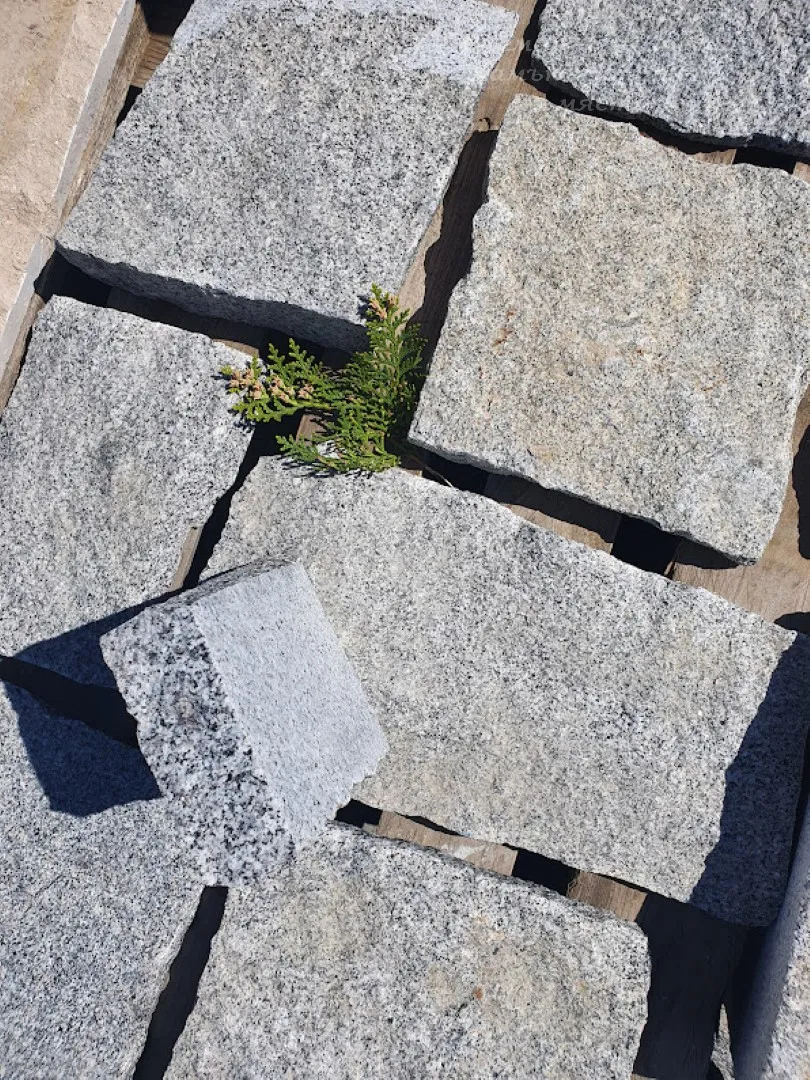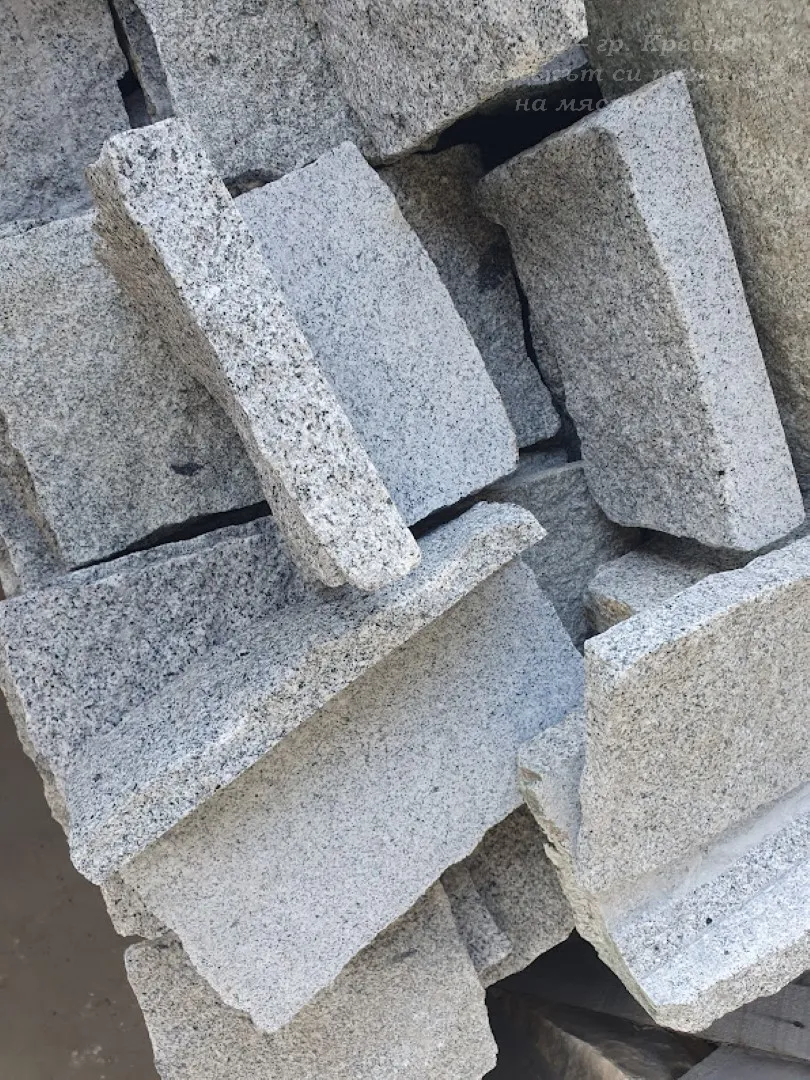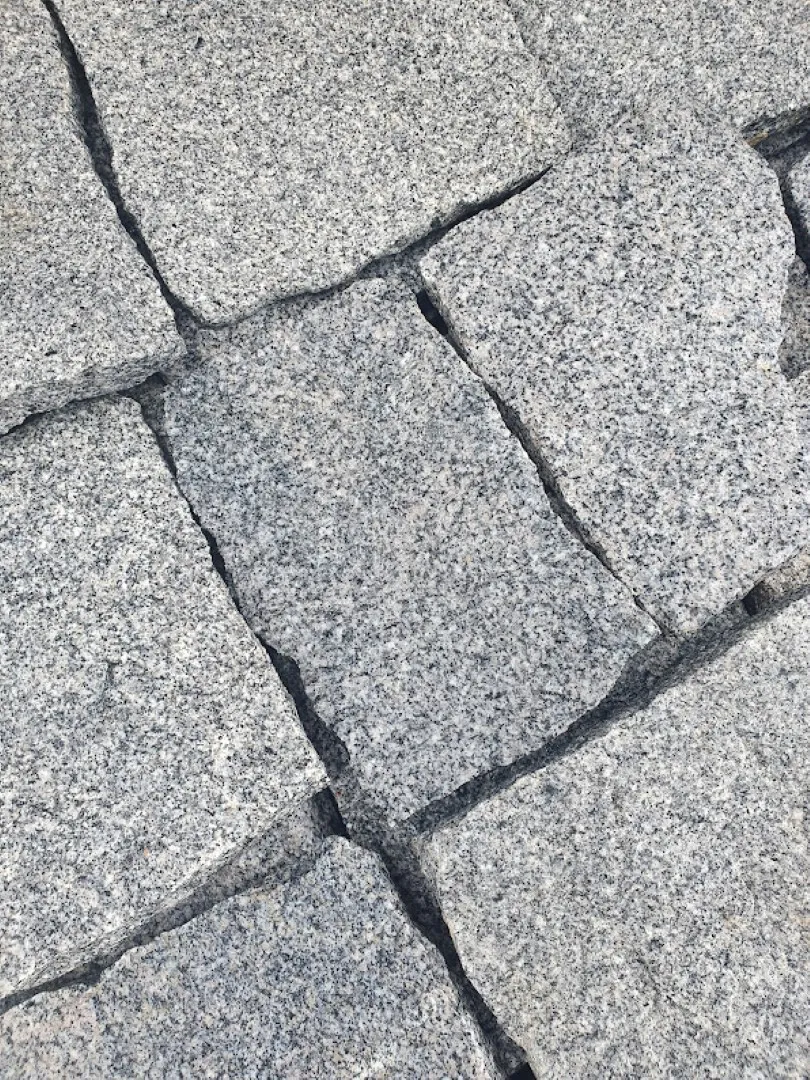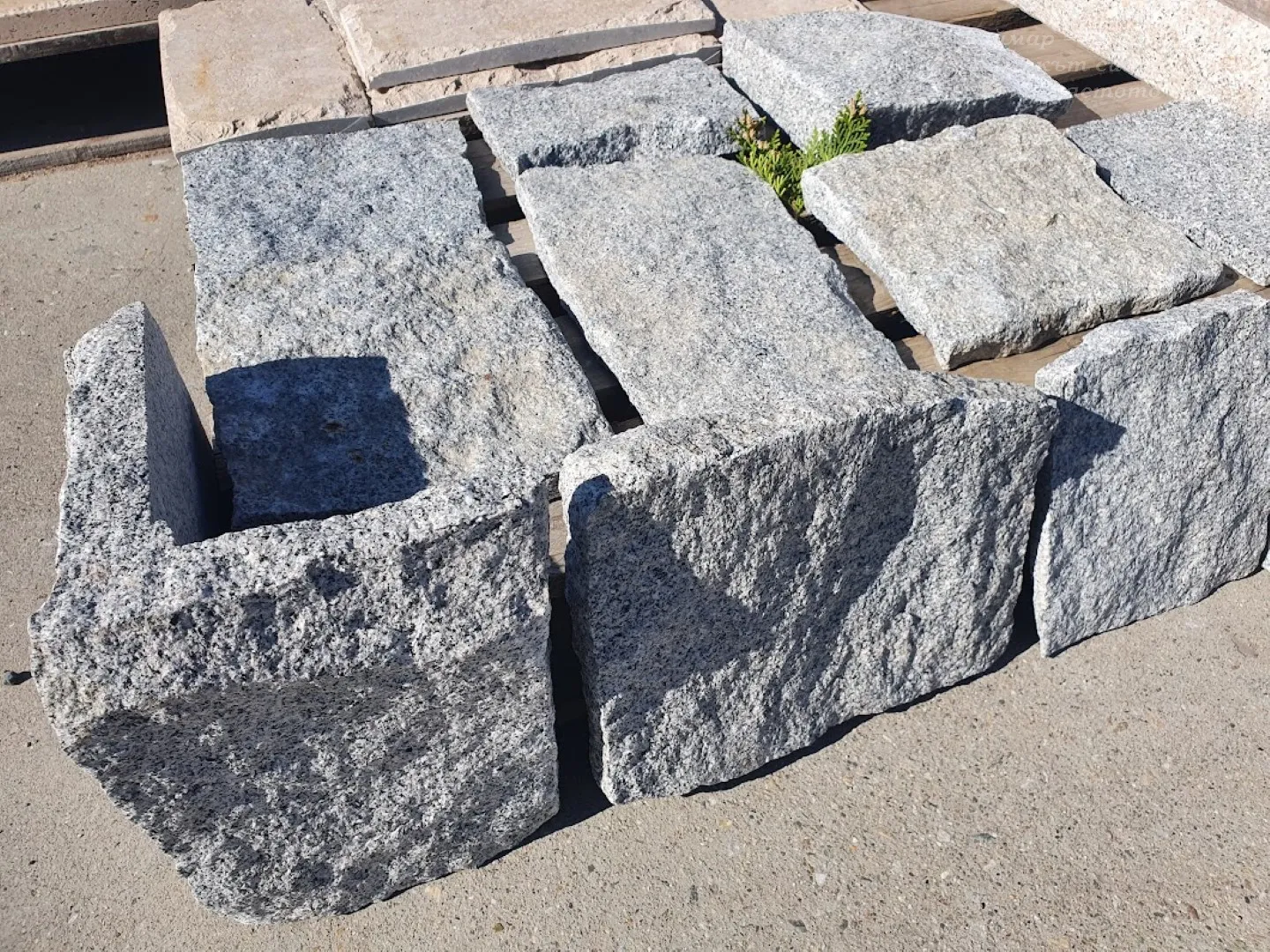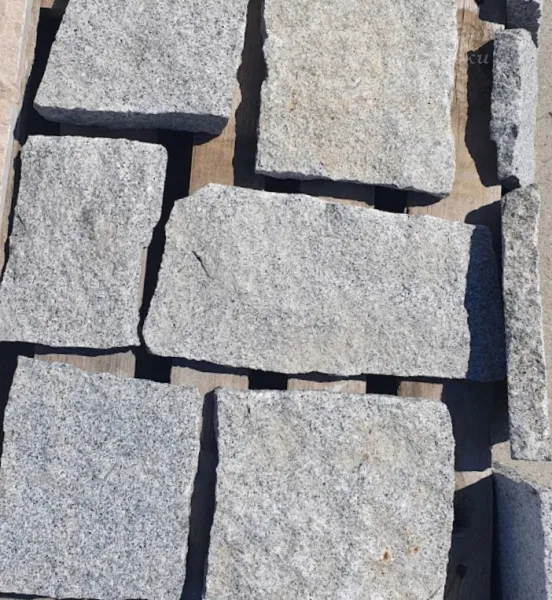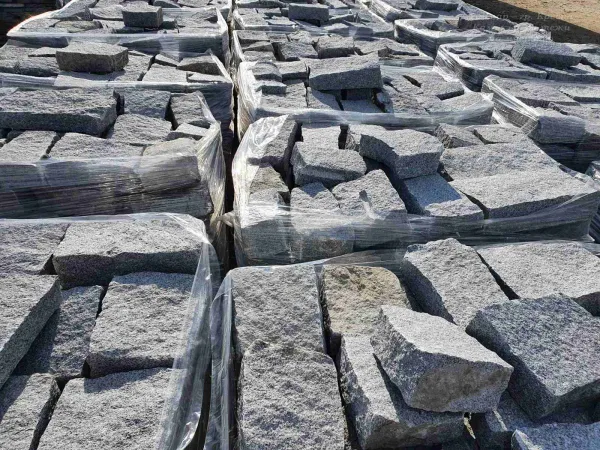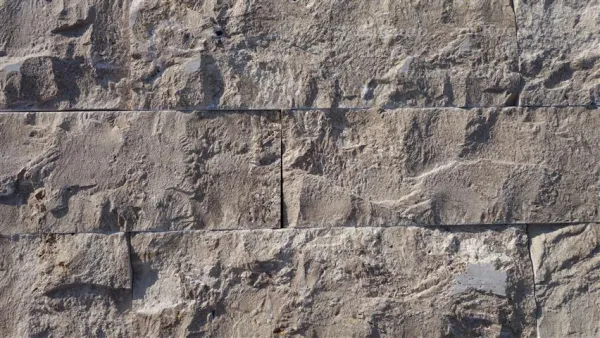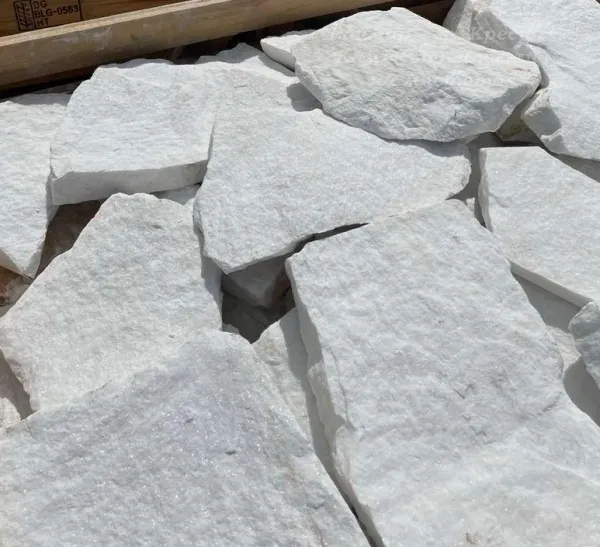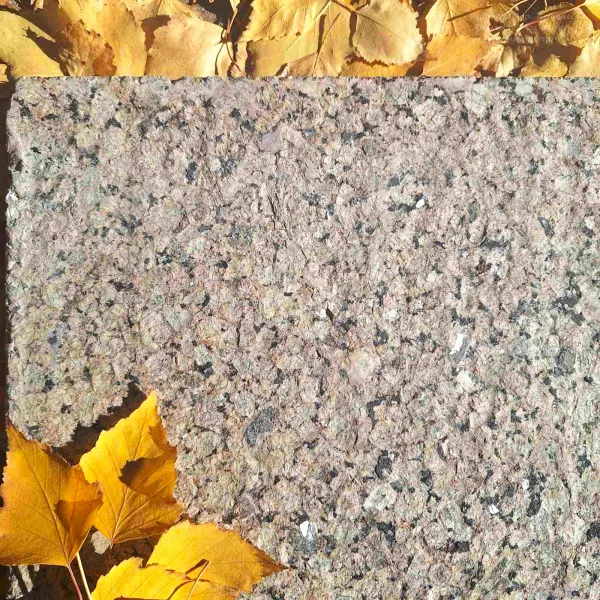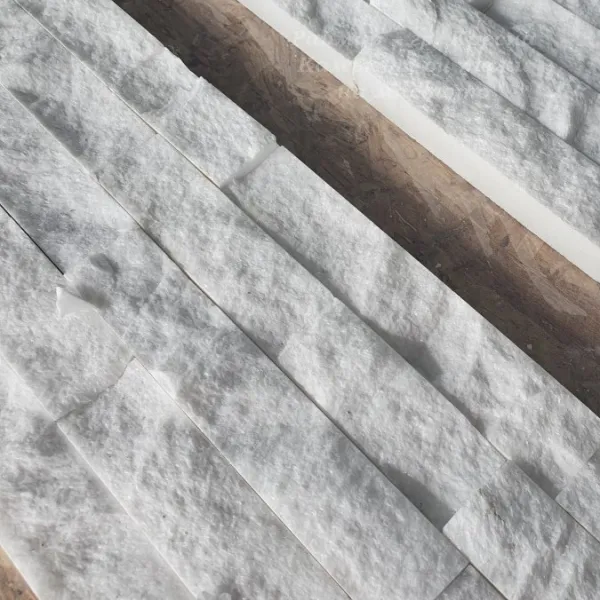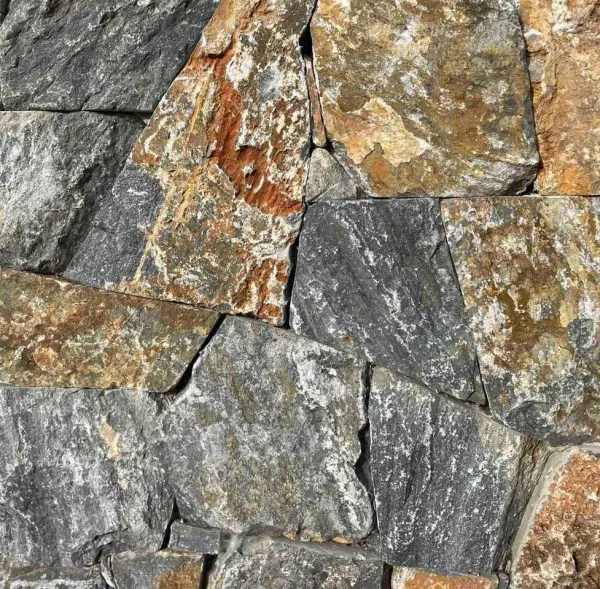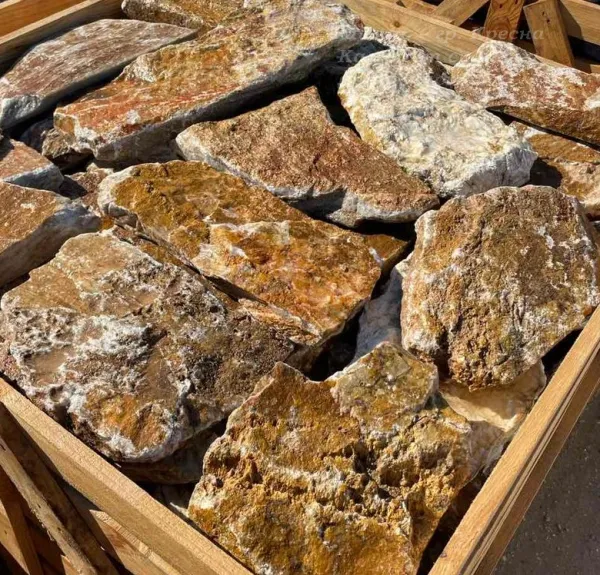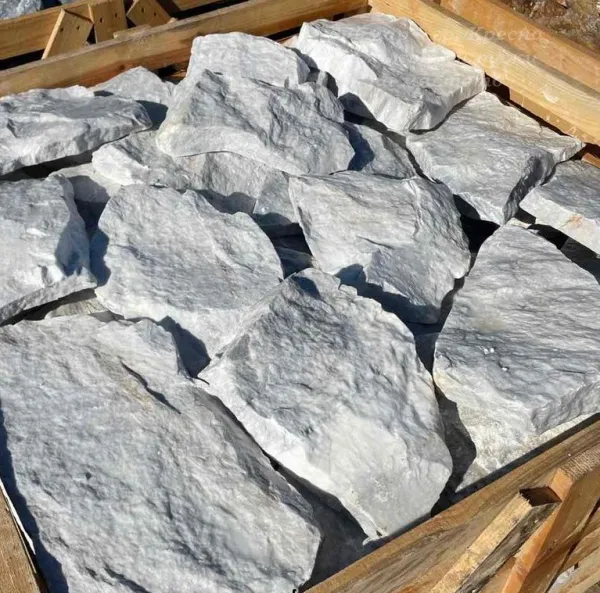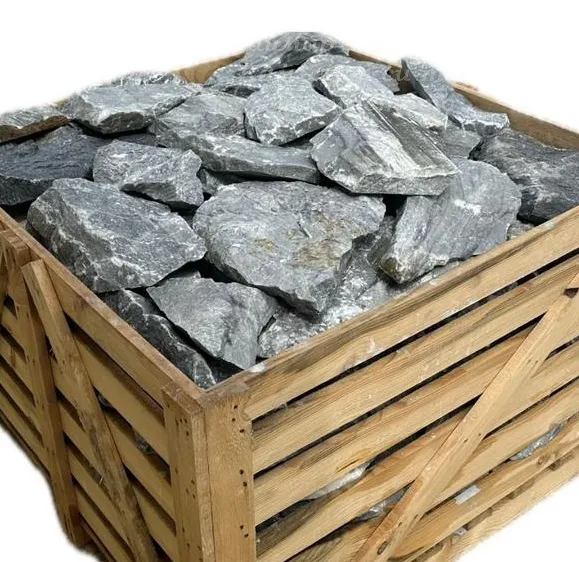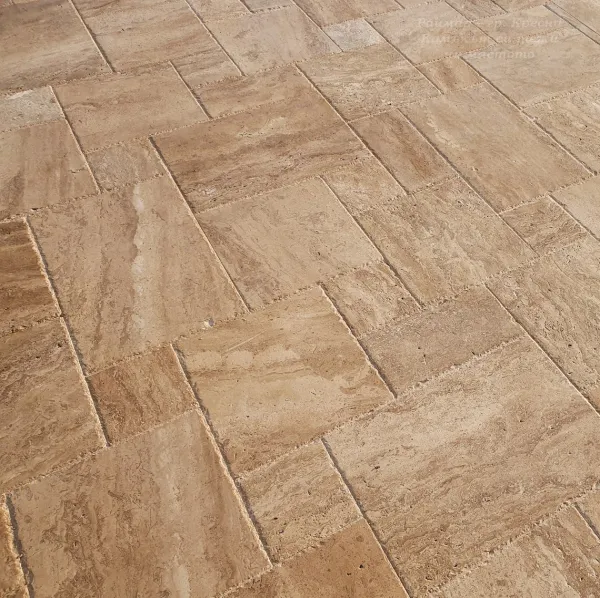Pirin granite veneer with cut backs
| Production lead time | |
| Material | Granite |
| Natural stone | Granite Pirin |
| Finish | Splitface |
| Price / Unit | Price per 1 sq.m |
| Price per linear meter | |
| Pallet | |
| Maximum pallet weight | 10-15 sq.m = 990 kg |
| Weight per 1 sq.m | 70-80kg/sq.m |
| Natural stone specifics | Possible deviations and variations in the colors and textures of the stone tiles are expected (resulting from the natural origin and formation of the stone). |
| The cut to size stone tiles have nominal dimensions with a tolerance of up to ± 3mm (not calibrated). | |
| Always plan for a 10% advance on the net square footage | |
| Our products are handmade craftsmanship, made by artisans (stone masons). | |
| Pre-sorting by color or caliber, as well as preferences for nuances, patterns, or color variations in the stone, is not possible in advance. | |
| Recommended adhesives | Cement adhesive class C2TES1: C - cementitious, 2 - improved strength properties, T - fixing, anti-slip, E - extended open time, S1 - elastic, for linear expansions (+ addition of TRAS against salt appearance/efflorescence) |
| For exterior and interior: gray cement adhesive MegaFlex C2TES1 BAUMASTER | |
| Protection, mandatory impregnation, and maintenance (LTP or AKEMI) | For protection against water absorption: Universal stone impregnator (LTP or AKEMI) |
| For protection against water and grease absorption: Stone impregnator Mattstone H2O | |
| Always clean natural stone with pH-neutral products only (LTP or AKEMI). | |
| For color enhancement and protection: Wet effect impregnator (LTP or AKEMI). |
Stone veneer cladding with granite slabs is one of the most durable and elegant ways to add style to your home or business. Granite is a natural stone used in the construction and cladding of exterior and interior spaces. It is one of the hardest and most resistant stones, capable of withstanding extreme conditions while maintaining its high quality and aesthetics for years.
Granite slabs (with cutback edges) for facade cladding can come in various sizes and shapes. They are cut into thin slabs, called caps, or into thin stone veneers with a cutback rear. These types of granite cladding have many advantages over other materials that can be used for facade cladding.
Prefabricated corners made of gray granite are an ideal solution for cladding wall edges. They are stone elements with a ready-made corner shape, made of high-quality Bulgarian Pirin granite.
Prefabricated corners are specially made with a cutback rear, ensuring their perfect adhesion to the wall edge. They are easy to install and can be used for both exterior and interior cladding. Sold at linear meter.
Prefabricated corners made of gray granite can be used for cladding various types of walls and edges, including cladding walls of houses, apartments, villas, and guesthouses. They distinguish themselves with aesthetic and elegant exterior appearance, contributing to the increased visual appeal of any building.
One of the most important advantages of cladding facades with granite slabs is their durability and resistance to atmospheric conditions. Granite is the most durable stone among all natural stones and can withstand strong impacts, wear, and atmospheric influences such as moisture, UV rays, and temperature changes. This makes it perfect for facade cladding where stones are exposed to extreme conditions.
The texture of granite is raw, rough, or uneven, making each facade cladding unique. This allows architects and designers to create beautiful facades that are also strong and durable.
Compared to other types of cladding, such as brick or wood, granite slabs are more resistant to atmospheric conditions and do not require constant maintenance. They also do not fade and do not emit harmful substances, making them an environmentally friendly choice.
Granite slabs can be used for cladding facades of various types of buildings, including residential buildings, shopping centers, hotels, hospitals, and other public buildings. They can also be used for renovating old buildings to give them a new look.
When choosing granite for facade cladding, it is important to consider how the building will look as a whole. For example, granite with texture and irregularities will give the building a natural and rustic look.
In addition to the external appearance, it is important to consider the functionality of granite slabs for facade cladding. They should be chosen depending on whether the building is exposed to strong winds or atmospheric influences.
Finally, it is important to consider the maintenance of granite facade cladding. Granite is easy to maintain and does not require special care.
In conclusion, granite facade cladding is elegant, durable, and refined. It can give any building a unique and striking exterior appearance that will continue to attract attention over the years.




 Български
Български




